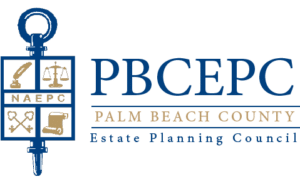 There are no simple solutions to this one. Family dynamics among a conventional family unit are often challenging enough but add in the complexities of re-marriage and they can seem endless. There are too many scenarios that can be presented on this topic, but let’s look at one family profile and some suggestions they can look into as their new life together evolves.
There are no simple solutions to this one. Family dynamics among a conventional family unit are often challenging enough but add in the complexities of re-marriage and they can seem endless. There are too many scenarios that can be presented on this topic, but let’s look at one family profile and some suggestions they can look into as their new life together evolves.
Our profile family consists of Steve and Jean, a newly married couple. Both are divorced from their previous spouses and each brings two children into the marriage. For argument, let’s make things easy and say that all children are over 25, living independently and everyone gets along. There are a handful of things that Steve and Jean should consider when drawing up their estate plan, even though this seems to be an ideal and happy family.
Even though everything seems easy, a simple will may not be enough to ensure the kind of legacy Steve and Jean would like. Assume Steve dies, Jean remarries and becomes estranged from Steve’s children over time. Jean has now inherited Steve’s wealth and revised her will to leave everything to her own children. Under a simple will, the surviving spouse has no obligation whatsoever to the decedent’s children.
Here are some things for Steve and Jean to consider incorporating into their planning.
First, think it all through. Nothing will be more beneficial than talking it over with each other and the children. Strong documents are needed to avoid pitfalls later on, but equally important is the need for frank and open communication. This can include an inventory of assets that each brings to the relationship (“mine / yours / ours”), any considerations for pre and/or post nuptial agreements, deciding on minimum amounts to be left for children, etc. Outlining the goals and intentions of the plan are critical during the planning process.
Placing assets in a trust is one way to ensure the surviving spouse has access to the assets during his/her life with the named children as ultimate beneficiaries. Naming an independent corporate trustee is a wise idea since it eliminates the question of neutrality as it relates to the beneficiaries. QTIP trusts are a convenient way to accomplish the goal of providing for the surviving spouse during his or her lifetime, while still directing an inheritance to your children. These are particularly effective in dealing with real property, such as Steve and Jean’s primary residence.
Another strategy involves purchasing life insurance for Steve and Jean, which names their children as beneficiaries. Since life insurance passes directly to named beneficiaries, instead of going through the estate process, this can ensure that a legacy is available for their children. The same thing goes for retirement plans, where assets are passed directly to the children.
Review the titling of all the assets very carefully with an estate planning attorney. It is likely that Steve and Jean would have titled at least some of their assets in joint name. If that’s the case, what you have in your will or trust might not matter as jointly held assets automatically transfer to the spouse upon your passing. The pitfall here is that the estate plan you think you have in place may not result in the goals that you were intending.
Finally, try not to get overwhelmed with over-thinking the “what if” scenarios. Trying to address every possible outcome over the next twenty years is too much to take on. Start by thinking through the next five years and know that you can always make modifications as the process exhibits more clarity.
Joseph C. Pauldine is a Senior Vice President of Cypress Trust Company. Mr. Pauldine assists individuals and their families with custom investment management solutions and trust administration services. He received his B.S. in Business Administration from Old Dominion University.
Cypress Trust Company is a boutique corporate fiduciary that focuses on creating customized investment strategies, serving as a corporate trustee, personal representative or agent during estate settlement and as an administrative trustee for clients already committed to an investment plan.
